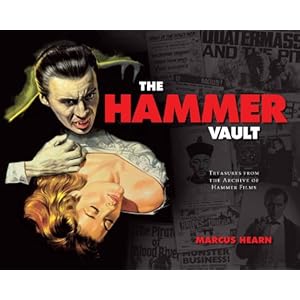Matthew Yglesias' article at Slate-- about how even a good anti-piracy bill would be fruitless because piracy doesn't matter-- compels me to re-run this piece:
Piracy pays for itself. Isn't that the argument? So you could prove it, right? Over at
Stacey Jay's blog, I
joined a conversation a week or so ago about e-book piracy. Pretty soon the argument came down to two sides:
- Those who thought pirated e-books hurt the sales of the author's books and cut down revenue
- Those who predicted that pirated e-books would actually act as advertisements and would lead to a revenue lift. (Also known as "can I show you this musing from Neil Gaiman again?") It doesn't matter to these people, by the way, whether I agree. They want free books without going to a library or borrowing one, but they're compelled for some reason to want me to feel better about it.
This second point is a
popular point; the people who make it are arguing that piracy is like libraries; where a person gets a taste for an author and then will buy later. My position was that libraries work that way because they're still very limited; with a pirated book, you can have a copy and so can everyone else. I might be incentivized to read more of the author, but there's no incentive to go buy a book.
One poster on the blog raised the phenomenon of suggested donations, but a suggested donation system is a scenario where the author makes the book free and asks for a donation. That's a floating discount, not piracy.
All of which brings me to this: prove it. I'm a businessman, so I'm easy to talk to about these things. Show me
a business case. The poster at Stacey Jay's blog answered this request with:
OK GO, Family Guy, Justin Bieber, South Park. Schmoyo (the autotune the news guys) I could cherry pick examples of people made wealthy and famous by internet file sharing all day, but then so could someone arguing the counterpoint. There are plenty of examples of both, so to say that all piracy is bad and all piracy is done with rosy hearted intentions is intellectually disingenuous.
Are there plenty? All of that paragraph is interesting but it's anecdotal, and also it's not about books. Here's what I want-- pick a case of e-book piracy and send me a spreadsheet that shows that the piracy grew revenue. Pick something major and pirated, like
Mockingjay, but to do this you're going to need real numbers. I want to see a success in the field. Since piracy has been going on for awhile, the example showing the value of piracy should be out there. Stacey Jay says that low sales due to piracy actually killed a book for her, so I guess that's not the example we're looking for. To win this, you need a case where piracy helps. Pro-piracy proponents insist that this will be readily available.
Key to the business case will, I suppose, be the percentage of readers downloading a pirated copy and deciding to purchase a book. What would that percentage be that would purchase the actual downloaded pirated book? Probably less than 1%, but we might also have a line for the percentage who downloaded a pirated copy and then decided to purchase
another book by the same author. What percentage would that be? I'm guessing-- rather liberally-- maybe as high as 1.5%, but bring me the proof to show me different. In theory, if 1.5% of 100,000 people who stole a book buy a second book because of this for $10, that's $15K for the vendor, which (assuming she has two books with a total costs of $150K, a completely made-up number intended to bring in salaries, etc.) means a negative NPV for our piracy program so far. Your piracy program so far is $135K in the hole, so if it were up to me, I'd cancel the piracy initiative and go back to selling books
without the benefit of piracy.
But wait, you say. $150K as a cost for two books was way too expensive. You should be able to publish a book online for practically free. Okay, make it free. So now I spent nothing and made 15K, but I can do better in the current environment where I have a time-limited government-issued monopoly on my work. At 15K, I go back to slinging hash, and the only people who can afford to create work will be the very wealthy. So long, democratization of thought.
But if my data is wrong, bring me the
right data. The way people talk this scenario up, there should be
plenty of data showing the value of promoting piracy. Because this might sound anecdotal and swell to you, but I actually pay bills through the benefit of copyright. It works for me. It's a system that works well, that allowed Stephen King to end his own poverty by selling
Carrie.
If someone can show me a two-year business case with a positive net present value for piracy, I'll send them an
Alex Van Helsing ARC (reader copy.) It won't even be pirated.




